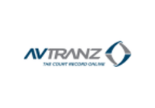The Issue
Whenever heavy audio files had to be imported from the storefront to TCRO2, there would be a significant degradation in the website performance, bringing it to an almost halt. Files would take a long time to be imported, and failures were common or would not get reported by the system. The AVTranz team understood that there were some issues in the way
Why Srijan
AVTranz approached several Drupal agencies across India. Srijan was one of the only two companies which could understand the challenges faced by AVTranz. And, Srijan was the only company which was ready to spend
Once convinced, about Srijan’s client focus and capabilities, AVTranz sanctioned a ‘Discovery Phase’ to solve the known problems and identify improvements in specific areas of the system by following Srijan’s Agile processes. At the end of this phase, Srijan delivered a report which identified the various issues in the workflow which led to the performance degradation. Srijan also identified more issues with the application that put it at a security risk. Because of some of these issues, the costing calculations were also not accurate. All of this had a direct impact on the productivity levels of the AVTranz managers as the system frequently required manual intervention.
Solution
Team and process: For the implementation phase, Srijan’s team involved in the discovery phase, a Business Analyst and a Tech Architect, continued on the project. A dedicated development team was staffed, in addition
The most critical pieces of the system were taken up first leading to
Architectural changes: Srijan replaced
Improving data maintenance: Srijan re-wrote the code for AVTranz’s automatic data maintenance module to handle automatic file cleanup of files. This cleans the system off unnecessary data that would otherwise clog the system.
Managing security risks: Srijan re-configured the file settings to ensure high privacy to files and data. Srijan also implemented OAuth (authentication), another layer of security. To improve the security further, the communication between the two systems was changed from XML to JSON.
Post-launch, as new orders were received, the bottleneck shifted to another part of the system (which was not part of original scope with Srijan). This was unforeseen and brought the systems down. Srijan’s team responded immediately. Having a dedicated team working in the Agile model ensured that the team could react in time. Another sprint was added and the bottlenecks were eliminated.
Business value delivered
Better communication between the two systems: Implementation of REST API replacing
Performance improvement: There is a significant improvement in performance. Pages load much faster with JSON-based REST API. The new automatic data maintenance module ensures that no unnecessary files are preserved.
Improved security: Security of the system has improved with new measures taken at various levels. Now it is not possible to get unauthorized access to files and data.
Further savings: A stabilized system has allowed the customer to complete full migration and decommission redundant servers saving more than $1,000 per month.
Improved satisfaction: Contractor (transcribers and proofreaders) satisfaction with the site has gone up dramatically. A productivity gain of over 30% for contractors has been achieved.
On-time delivery rates up: The smoothly functioning system has led to
Support calls down: Support calls from external customers have reduced by 50




